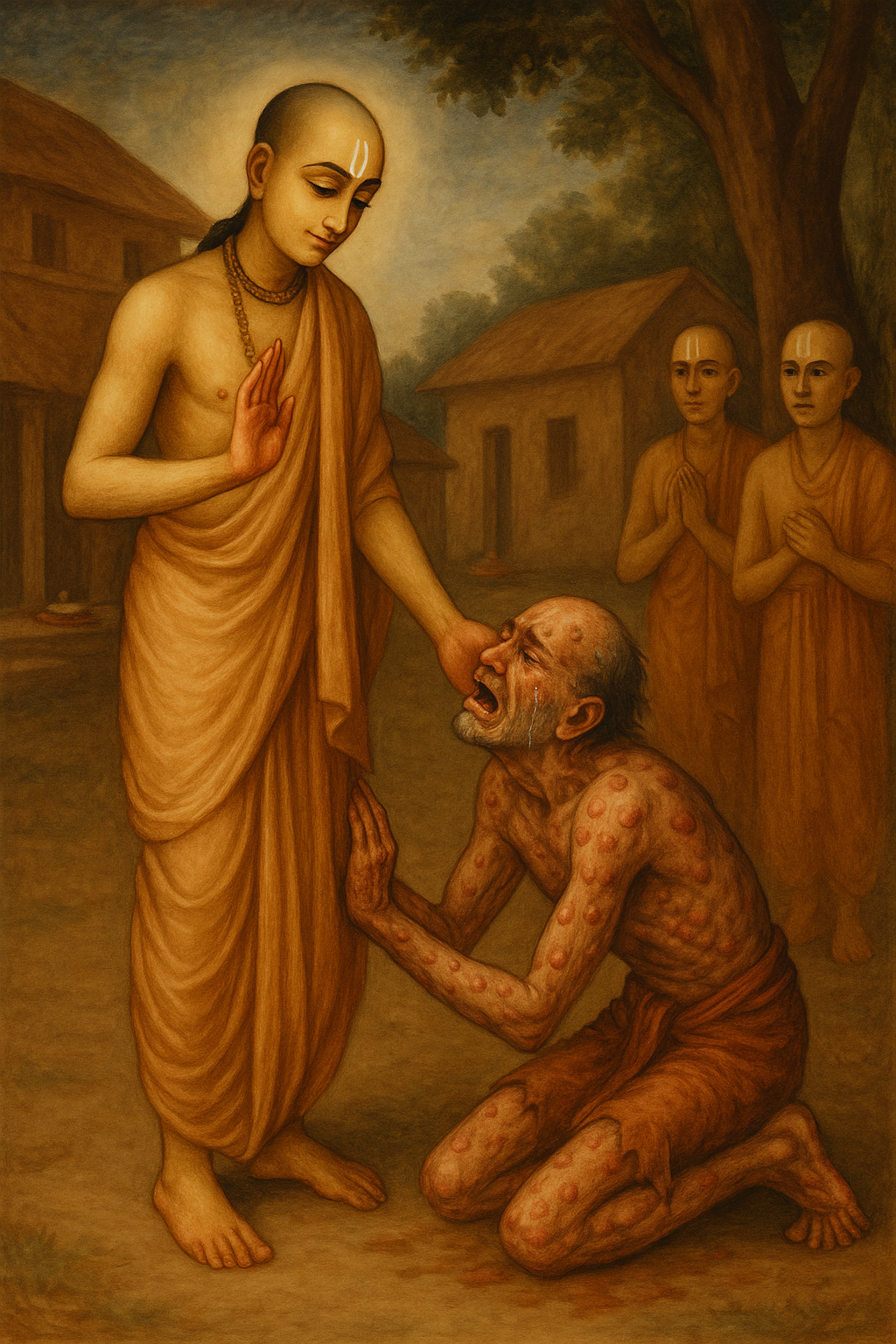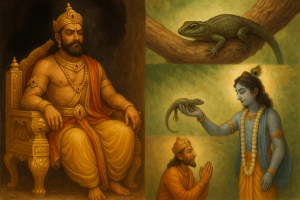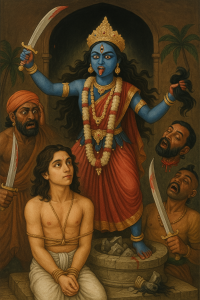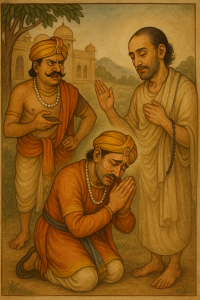Based on the Life of Śrī Caitanya Mahāprabhu
Jealousy Breeds Darkness
Gopāla Cāpala, though born in a brāhmaṇa family and known for his ritual knowledge, allowed the serpent of envy to coil around his heart. He could not tolerate the divine influence and spiritual respect that Śrīvāsa Ṭhākura received as one of the four pillars of Lord Caitanya’s saṅkīrtana movement. Instead of rejoicing in the elevation of a fellow brāhmaṇa, he seethed in jealousy.
Blinded by this envy, Gopāla attempted to defame Śrīvāsa by placing offerings and paraphernalia of the worship of Goddess Bhavānī (Durgā) just outside his door. His aim was to accuse Śrīvāsa of secretly performing demigod worship while externally appearing as a pure Vaiṣṇava. It was a calculated insult, done not with weapons, but with ritual articles—meant to assassinate character through deceit.
The Burning Consequence
But the Lord sees everything. Not long after this malicious act, Gopāla Cāpala was struck by divine justice. A terrifying form of leprosy overtook his body. His limbs oozed, his skin cracked and bled, and his flesh decayed. His body became a grotesque sight, a living symbol of his inner corruption. No physician could help him, no man dared approach him. He was cast out—not just socially, but spiritually.
His offense—born not of ignorance but deliberate malice toward a Vaiṣṇava—became a spiritual death sentence. As described by Śrī Caitanya Mahāprabhu elsewhere:
“Even if one chants the holy name constantly, if he offends a Vaiṣṇava, his chanting will bear no fruit.”
The leprosy that ravaged his body was only a reflection of the poison that had long infected his heart.
Humbled Before Mercy
Years passed in agony and isolation. At last, broken by suffering and inwardly transformed, Gopāla Cāpala realized the weight of his offense. The arrogance that once fueled him had dissolved in the fire of his affliction.
One day, dragging his disfigured body, he came before Śrīvāsa Ṭhākura. With tears flowing and voice choked, he fell at his feet.
“O Mahāśaya,” he cried, “I was blinded by envy. I mocked you, a pure devotee of the Lord. My condition is just punishment. But please—grant me your mercy. Let me not die without your forgiveness.”
Śrīvāsa Ṭhākura, ever compassionate, saw the spark of genuine repentance. Though deeply hurt by the offense, he understood the value of humility and confession in devotional life. With heartfelt compassion, he forgave Gopāla. As a symbol of mercy, he placed the dust of his feet on Gopāla’s head.
By this act of grace, Gopāla Cāpala was cured—not only of leprosy, but of the ignorance and envy that once ruled his heart.
🪷 Lessons to Be Learned
- Envy toward a devotee is not just a moral flaw; it is a spiritual toxin. Such an offense—Vaiṣṇava-aparādha—can destroy even lifetimes of spiritual practice.
- Physical suffering can reflect deeper spiritual misdeeds. Gopāla’s leprosy was a divine warning to all: inner offenses eventually manifest outwardly if left unchecked.
- True healing begins with humility. Pride invites ruin, but confession, surrender, and heartfelt repentance open the door to mercy.
- Forgiveness flows from the heart of a true Vaiṣṇava. Śrīvāsa Ṭhākura showed that a real saint is not vengeful, but deeply moved by another’s sincere transformation.



